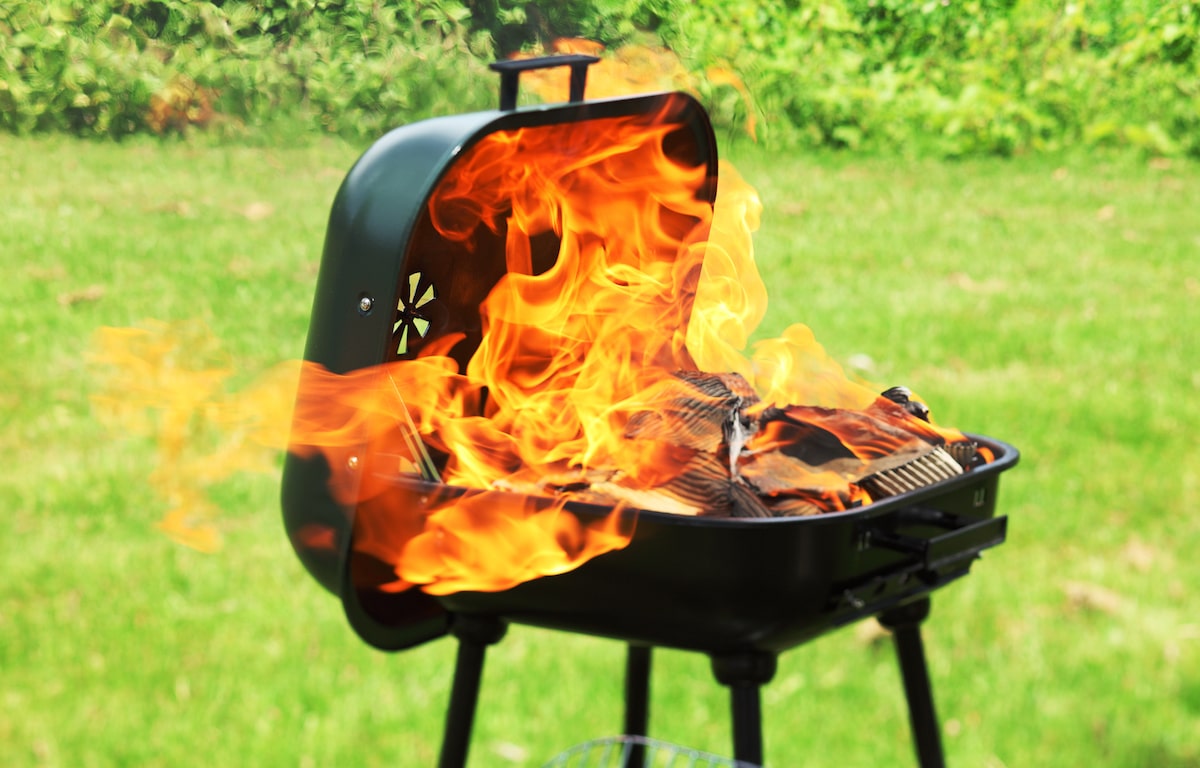Summer is synonymous with barbecues, fireworks and fun in the sun. With it comes an uptick in burn cases to hospital Emergency Departments (ED) everywhere.
Most are preventable. With the proper care and attention, a trip to the ED is avoidable.
“Our skin’s function is to protect the body from the outside world,” says Dr. Sara Case, Medical Director of the Hartford Hospital Wound Healing and Hyperbaric Center. “Open wounds and burns can expose body to infection, tetanus and cause dehydration.”
> Want more health news? Text StartHere to 85209 to sign up for text alerts
Grills
Outdoor grills are a common threat. Nothing can spoil a barbecue like a grill accident. Lighter fluid, when used incorrectly with charcoal grills, can create flash fires that can cause severe injuries. Use lighter fluid sparingly. Even better, try newspapers with a charcoal chimney or egg cartons as starters.
Gas grills must be properly installed, cleaned and used to avoid accidents. Keep children away from the grill, avoid alcohol consumption when operating a grill, and do not smoke around a grill.
If you suffer a grill burn, and there are flames on your body, Dr. Case offers this potentially lifesaving advice.
“The worst reaction is running,” she says. “The best thing you can do is stop, drop and roll. If your burn is painful with blisters, put ice on it if you can and get to the ED for treatment.”
Sunburn
Most sunburns do not require a visit to the ED. The best way to avoid the pain of sunburn is to protect your skin. Apply sunscreen liberally and frequently. Wear a brimmed hat, seek out shade and avoid midday sun.
When spending time in the sun it’s important to hydrate. If you do get sunburn, seek attention if blisters form. Blisters, left untreated or exposed, can lead to infection. Never pop blisters, as doing so can invite infection.
Fireworks
Fireworks, while delightful to watch, are dangerous. Do not keep fireworks around a grill or near fire sources. Always keep a bucket of water or hose nearby, in case of emergency. Depending on intensity and location of the burn, seek medical attention.
Some wounds need to be monitored at the Wound Center. Small procedures can make sure the skin heals properly. Larger and more complex burn wounds require dressings to cover the wound for increased comfort and to prevent fluid loss.
Some wounds also require removal of unhealthy tissue. As the burn heals, the treatment may change, too. For this reason, people return to the Wound Center periodically as the burn wound improves.
Dr. Case offers this reminder when dealing with burn wounds: “They can be self-treated, but care must be taken to do it correctly. Proper wound care keeps pain down, decreases the risk of infection and fosters the healing process.”
For more information on the Hartford Hospital Wound Care and Hyperbaric Center, click here.
Not feeling well? Call your healthcare provider for guidance and try to avoid going directly to an emergency department or urgent care center, as this could increase the chances of the disease spreading.
Click here to schedule a virtual visit with a Hartford HealthCare-GoHealth Urgent care doctor.
Stay with Hartford HealthCare for everything you need to know about the coronavirus threat. Click here for information updated daily.
Questions? Call our 24-hour hotline (860.972.8100 or, toll-free, 833.621.0600).


